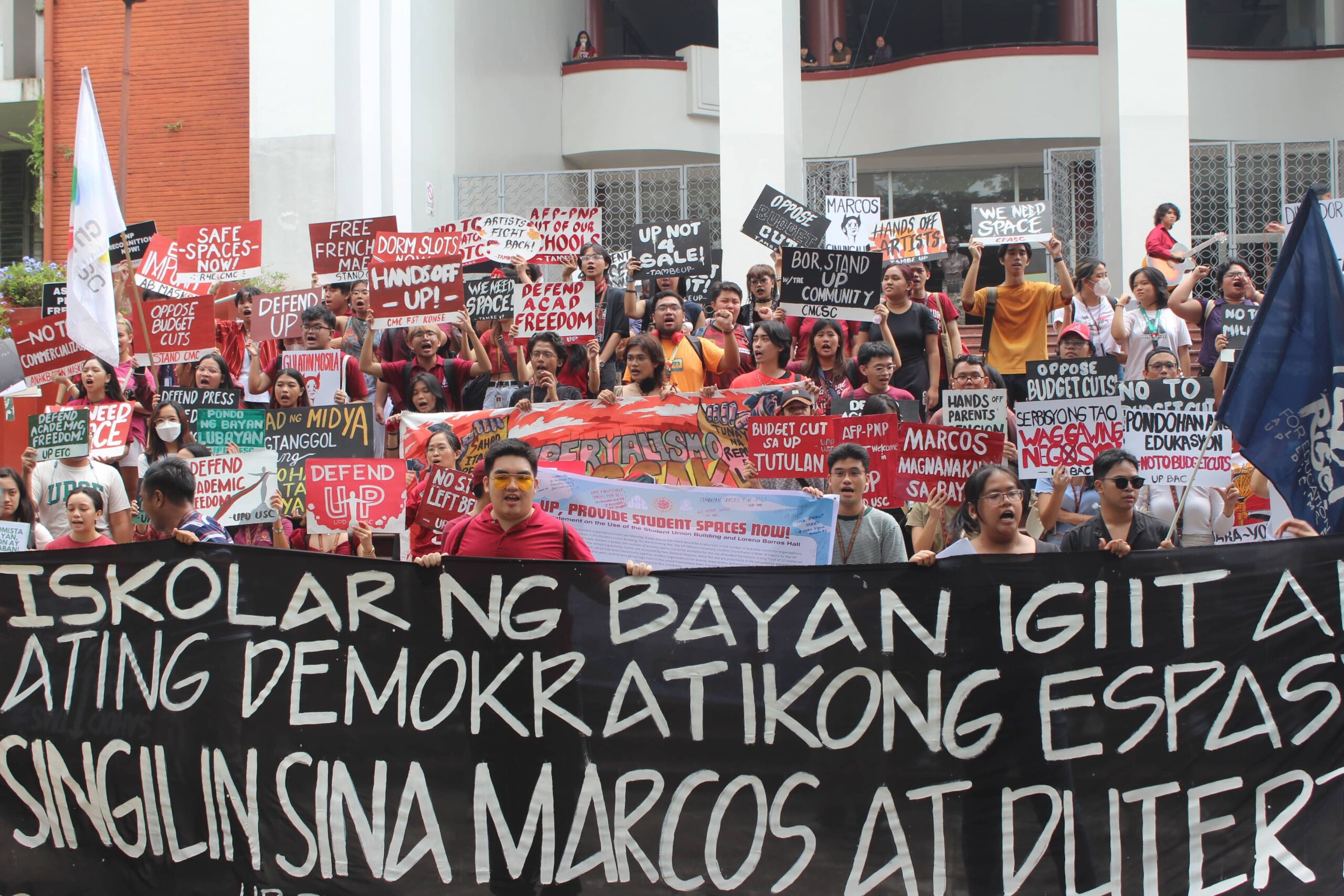On the first day of classes of the new semester, students from the University of the Philippines (UP) Diliman held a protest Tuesday, September 12, voicing their demand for increased student spaces on campus.
“Marami sa atin ang nag-aagawan sa dormitoryo, mga yunit sa CRS, at mga tambayan na dapat inilalaan sa mga pormasyon,” the UP Diliman University Student Council (USC) said in a statement.
(Many of us are scrambling to get dormitory rooms, subjects, and spaces for student organizations.)
“Sa halip na maipagkaloob ang espasyo sa mga estudyante, guro, kawani, guwardiya, manininda, jeepney driver, at maralitang [tagalungsod], ito ay kinukulang, binibigay sa mga pribadong institusyon o pilit pinanghihimasok ng pulis at militar. Pinapalalâ lahat ito ng mga budget cuts ngayon sa mga pampublikong paaralan,” the UP Diliman USC added.
(Rather than being designated for students, faculty, staff, security guards, vendors, jeepney drivers, and the urban poor, these spaces are often reallocated to private entities or face unwarranted interference from the police and military forces. The predicament is further exacerbated by budget cuts in the education sector.)
Rise for Education-UP Diliman Interim Co-Convener Sean Latorre outlined the campaign’s four primary objectives.
These are increasing the provision of subjects and spaces dedicated to students, scrapping the current UP Master Development Plan, restricting the unwarranted presence of police and military forces on campus, and advocating for a higher state subsidy allocation for the University.
“Sana kaisa namin kayo sa pagpapanawagan ng apat na punto na ito. Patuloy nating ipapanawagan ang ating pangangailangan para sa espasyo,” Latorre said.
(We hope for your support in advocating these four core objectives. Our campaign for more student spaces remains undeterred.)
DZUP has reached out to UP Diliman Chancellor Edgardo Carlo Vistan II for comment, but he has yet to provide his response as of writing.
In his vision paper, Vistan articulated his administration’s commitment to fostering “holistic formation and welfare of students.”

